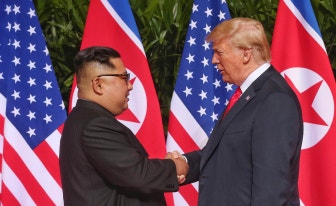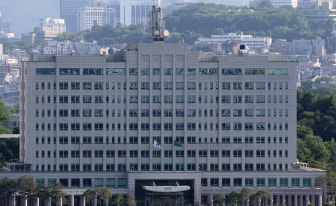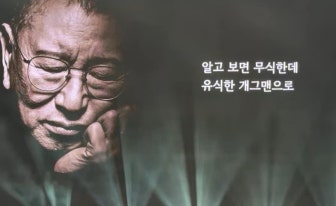Amitav Ghosh, the renowned Indian writer, is visiting Korea this week to receive the 2025 Pak Kyongni Prize, sponsored by the Toji Cultural Foundation. Ghosh is an internationally known, critically acclaimed writer who was “widely discussed and considered a top contender” for the 2025 Nobel Prize in literature.
What is especially crucial to Amitav Ghosh’s work is his examination of the various negative aftereffects and remnants of colonialism that are still persistent in former colonies, even though they are often inconspicuous or invisible. His recurrent themes include colonial history, cultural displacement and the relocation of colonized people.
Ghosh’s 2000 novel, “The Glass Palace,” depicts the lives of three generations of the family of Rajkumar Raha, an Indian orphan, in an exploration of how European colonialism uprooted and ruined the lives of native people in India and other South Asian countries under the banner of capitalism. Through the sagas of its characters, Ghosh’s novel suggests that the aftereffects of colonialism still cast a shadow over the lives of formerly colonized people.
In that sense, Ghosh’s seminal novel has a deep resonance with Pak Kyongni’s monumental epic “Land.”
Pak’s novel, too, portrays the lingering ills of colonialism in depicting how Japanese occupiers destroyed Korean lives, with many losing their property and having to leave their homeland in frustration. “Land” foreshadows how the specter of colonialism continues to haunt the Korean psyche. Pak’s theme revolves around Korea’s colonial history that caused the Korean people’s relocation as well as cultural displacement.
The title of “The Glass Palace” is symbolic because a palace made of glass is, though luminous, so fragile that it can be easily shattered by a storm or, figuratively speaking, taken over by a foreign power. In that sense, the colonized “land” resembles a glass palace. The glory and luxury of the palace or the land will be gone in a flash amid the whirlwind of international conflicts, such as colonialism. However, both the glass palace and land can be restored and rebuilt if colonized people can endure the storm, restore strength and defeat the colonizers.
Both India and Korea witnessed how colonialism shattered their glass palace, resulting in the loss of land and the breaking apart of families. That is why Ghosh and Pak share the same concerns and themes. In that sense, it is especially meaningful that the foremost Indian writer is being awarded Korea’s prestigious Pak Kyongni Prize.
From 2004 to 2015, Ghosh wrote the Ibis trilogy, which consists of “Sea of Poppies” (2008), “River of Smoke” (2011) and “Flood of Fire” (2015). Set during the First Opium War in the 1830s, the trilogy depicts how European colonialism devastated Asia through unfair trade and exploitation. In the trilogy, “opium” serves as a powerful metaphor because opium addiction deprives the colonized of their souls and spirits by intoxication. Indeed, when addicted to opium, colonized people can easily forget their miserable predicaments and feel comfortable in their hallucinations.
Today, we are facing the global crisis of climate change.
In his 2016 nonfiction book, “The Great Derangement: Climate Change and the Unthinkable,” Ghosh shows how colonialism is responsible for today’s climate crisis. In his 2019 novel, “Gun Island,” Ghosh also displays the ways in which involuntary immigration, human trafficking and the forced migration of the colonized have destroyed natural and human ecosystems.
In his 2021 nonfiction book, “The Nutmeg’s Curse: Parables for a Planet in Crisis,” Ghosh delves deeper into this interrelationship between colonialism and environmental issues. Focusing on the massacre of the native people in the Banda Islands by the Dutch East India Company for nutmeg in 1621, Ghosh argues that today’s climate change and environmental issues are the inevitable outcome of colonialism. He points out that due to inherited poverty, formerly colonized people are still using carbon-based fuel, which plays a significant role in climate change by spreading air pollution, deforestation and desertification.
Embarrassingly, colonialism is surging again these days. This time, big and strong countries are attempting to colonize small and weak countries under the banner of socialism and under the excuse of restoring their former territories. Once again, they are destroying our environmental and ecological system by relocating innocent people as war refugees or killing them on the battlefields.
To inspire the Korean people’s independence movement during the Japanese occupation, the great Indian Nobel laureate Rabindranath Tagore wrote the 1929 poem “The Lamp of the East”: “In the golden age of Asia/ Korea was one of its lamp-bearers/ And that lamp is waiting to be lighted once again/ For the illumination in the East.”
Although Korea has been glittering in Asia already, Korea will truly become “the illumination in the East” when she cooperates with India by putting an end to colonialism on earth. We wholeheartedly welcome Amitav Ghosh’s visit to the “Lamp of the East.”
Kim Seong-kon
Kim Seong-kon is a professor emeritus of English at Seoul National University and a visiting scholar at Dartmouth College. The views expressed here are the writer's own. -- Ed.
























































